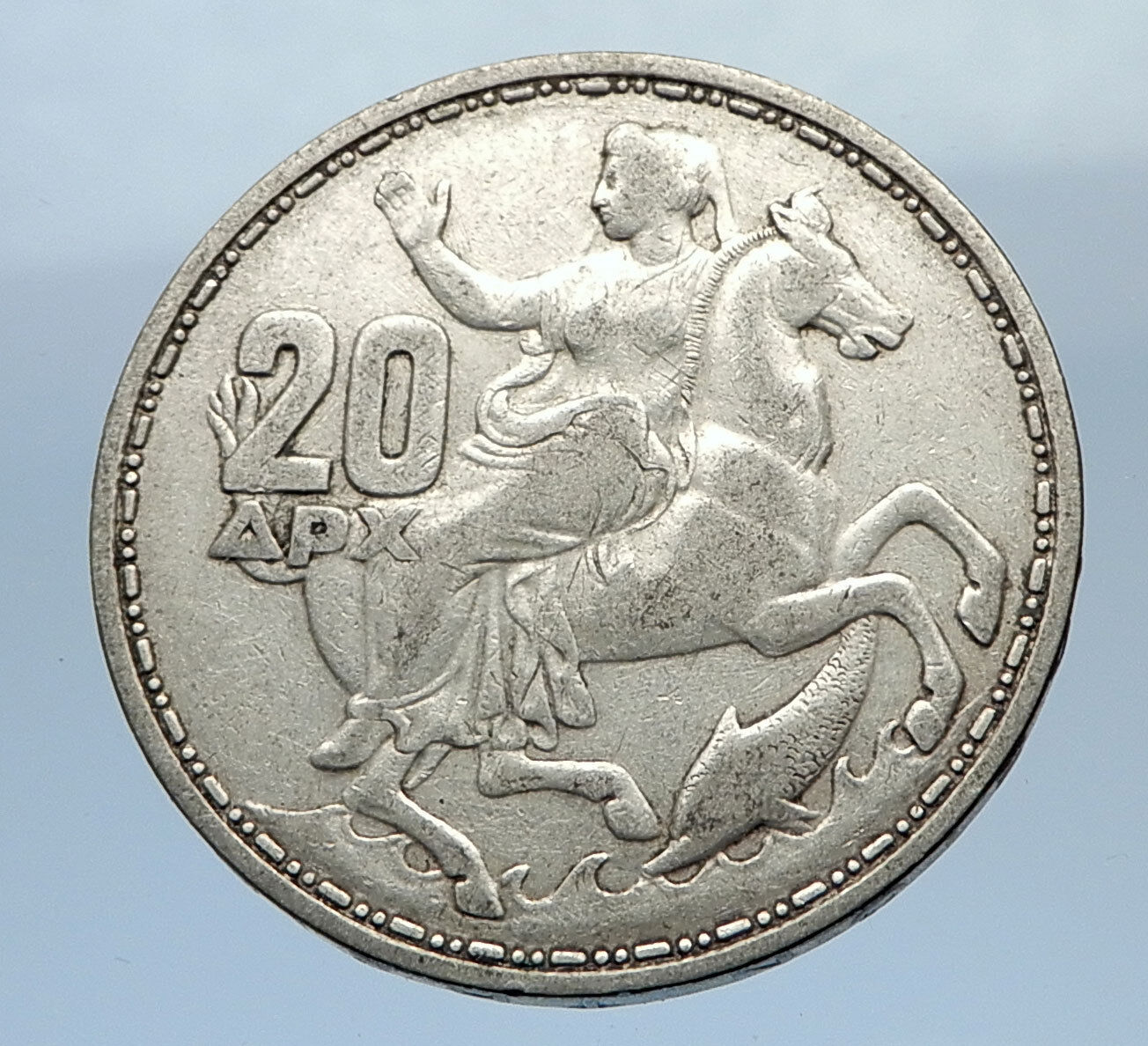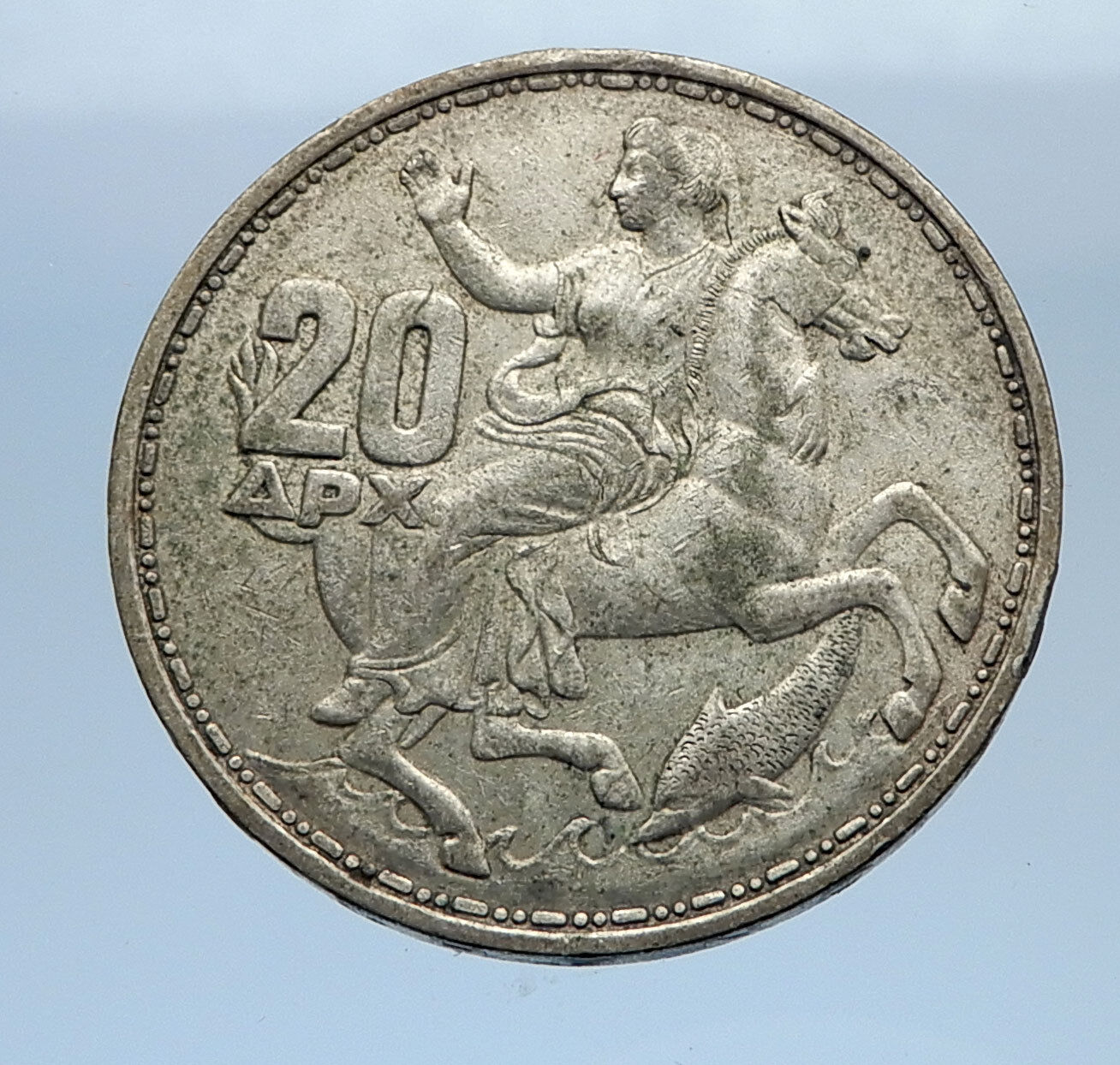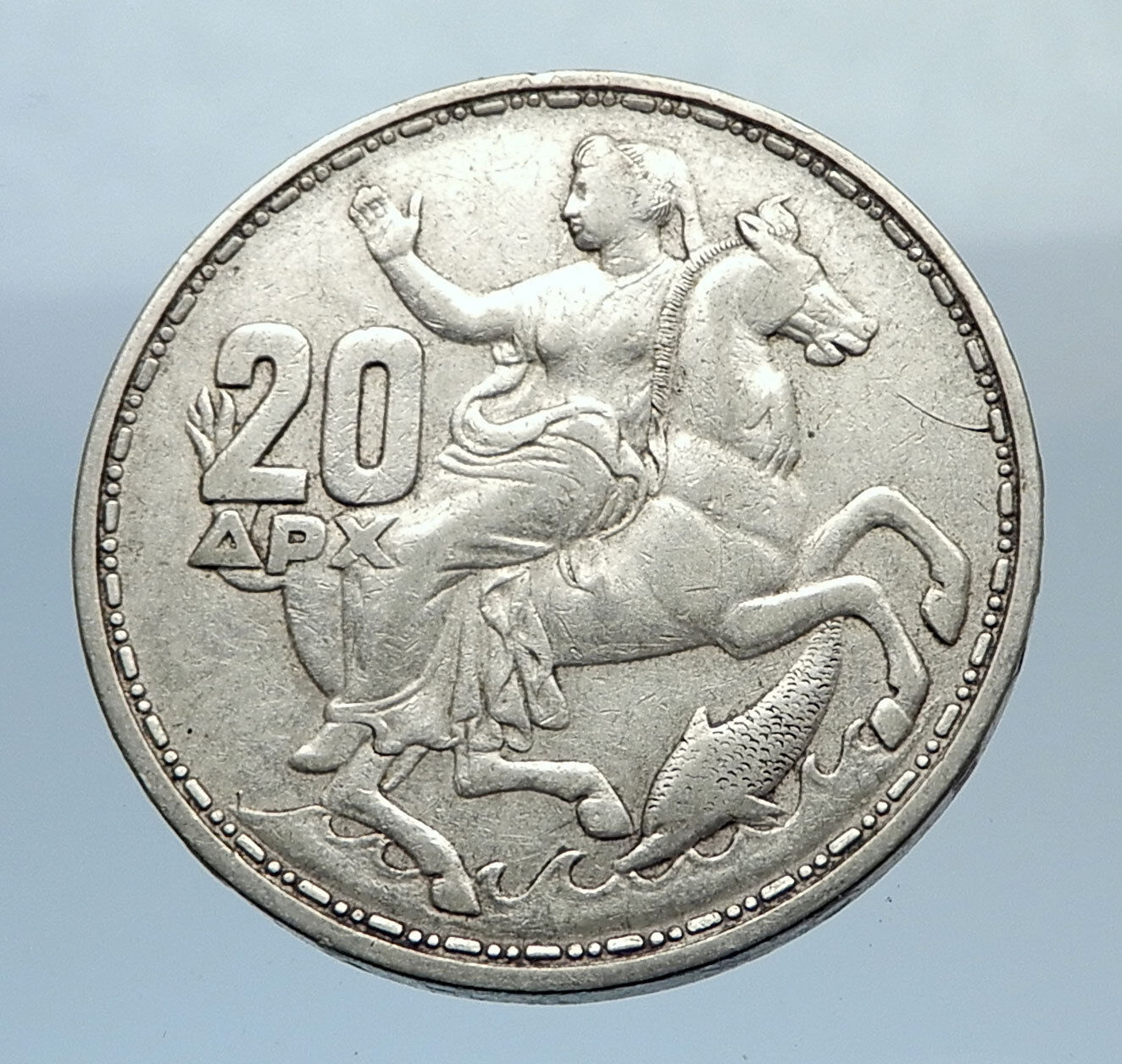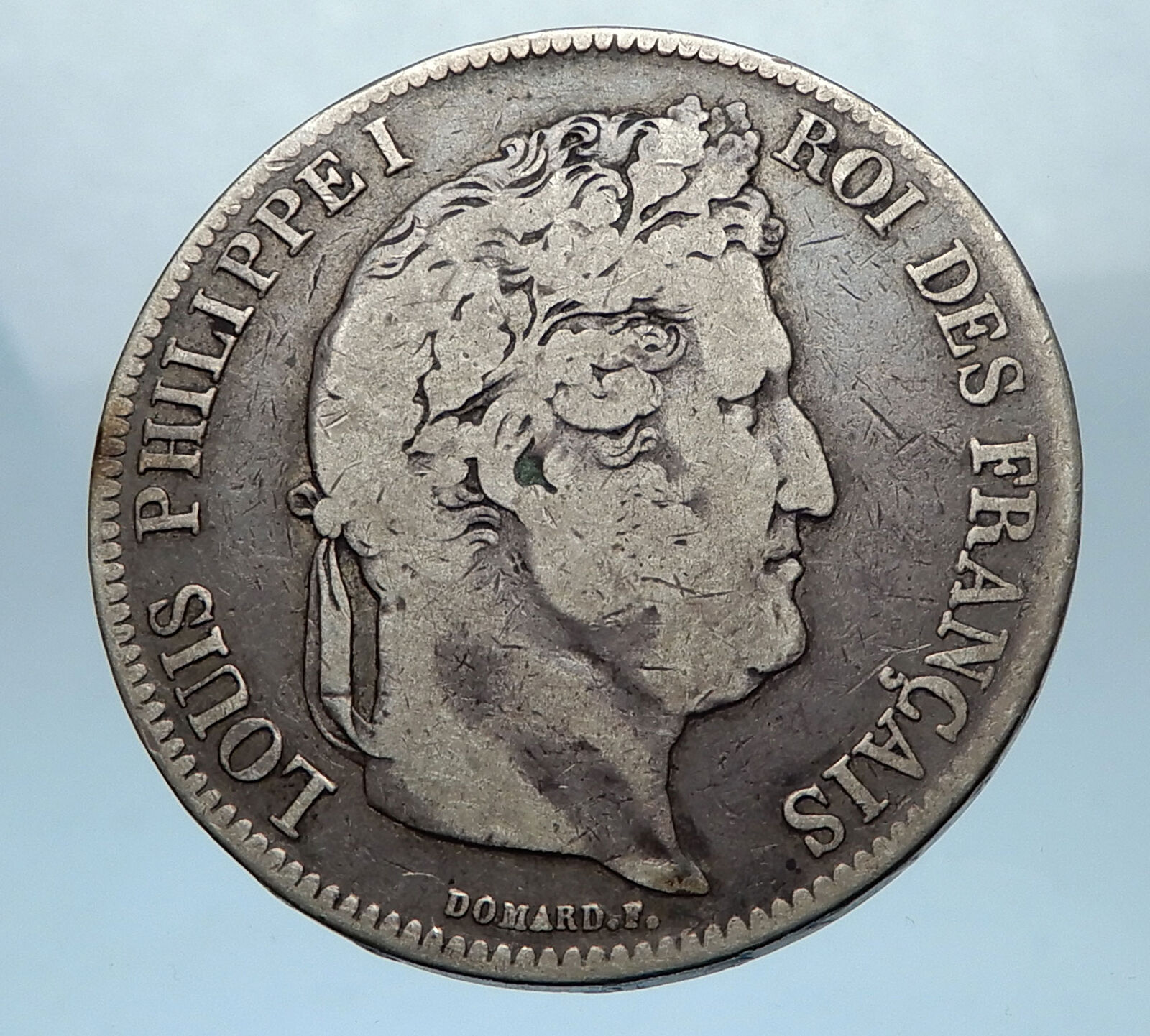|
France – Ski Jumpers – 1992 XVI Olympics, Albertville
1991 Silver 100 Francs
37mm (22.13 grams) 0.900 Silver (0.6424 oz. ASW)
Reference: KM# 995
Certification: NGC
PF 69 ULTRA CAMEO 2863155-013
|REPUBLIQUE FRANÇAISE, Ski jumpers.
XVIes JEUX OLYMPIQUES D’HIVER 100 FRANCS 1989 ALBERTVILLE92, Cross on flame.
Edge Lettering: LIBERTE EGALITE FRATERNITE
You are bidding on the exact item pictured, provided with a Certificate of Authenticity and Lifetime Guarantee of Authenticity.
 The 1992 Winter Olympics, officially known as the XVI Olympic Winter Games (French: Les XVIes Jeux olympiques d’hiver), were a winter multi-sport event celebrated from 8 to 23 February 1992 in Albertville, France. They were the last Winter Olympics to be held the same year as the Summer Olympics,[1][2] and the first where the Winter Paralympics were held at the same site. Albertville was selected as host in 1986, beating Sofia, Falun, Lillehammer, Cortina d’Ampezzo, Anchorage and Berchtesgaden. The games were the third Winter Olympics held in France, after Chamonix in 1924 and Grenoble in 1968, and the fifth Olympics overall in the country. The 1992 Winter Olympics, officially known as the XVI Olympic Winter Games (French: Les XVIes Jeux olympiques d’hiver), were a winter multi-sport event celebrated from 8 to 23 February 1992 in Albertville, France. They were the last Winter Olympics to be held the same year as the Summer Olympics,[1][2] and the first where the Winter Paralympics were held at the same site. Albertville was selected as host in 1986, beating Sofia, Falun, Lillehammer, Cortina d’Ampezzo, Anchorage and Berchtesgaden. The games were the third Winter Olympics held in France, after Chamonix in 1924 and Grenoble in 1968, and the fifth Olympics overall in the country.
Only some of the skating and the opening and closing ceremonies took place in Albertville, while the rest of the events took place in the villages of Courchevel, La Plagne, Les Arcs, Les Menuires, Les Saisies, Méribel, Pralognan-la-Vanoise, Tignes and Val d’Isère. Sixty-four nations with 1,801 athletes participated in the games, including the Unified Team which represented non-Baltic former Soviet republics. Germany participated as a unified team, while five newly independent European countries debuted, as did six “warm-weather” countries. Short track speed skating, moguls and women’s biathlon made their debut as an Olympic sport. The games were the last Winter Games until 2014 to have demonstration sports, consisting of curling, aerials, ski ballet and speed skiing. It was the last Olympics to have an outdoor speed skating rink. The games were succeeded by the 1992 Winter Paralympics from 25 March to 1 April.
Norwegians won every male cross-country skiing race, with Bjørn Dæhlie and Vegard Ulvang both collecting three gold. Ski jumper Toni Nieminen, 16, became the youngest male gold medalist of a Winter Olympic event. Petra Kronberger won both the combined event and the slalom, while Bonnie Blair won both the 500 m and 1000 m speed skating events and Gunda Niemann took both of the longest races. Kim Kihoon earned gold medals in both men’s short track events. Ye Qiaobo of China won the country’s first medal in the Winter Olympics, a silver in women’s 500 metres speed skating. Annelise Coberger of New Zealand won the southern hemisphere’s first Winter Olympic medal-a silver in the women’s slalom. Nicolas Bochatay was killed during a training session. Germany won the most medals and the most gold.
Liberté, égalité, fraternité (pronounced: [libɛʁte eɡalite fʁatɛʁnite]), French for “liberty, equality, fraternity”, is the national motto of France and the Republic of Haiti, and is an example of a tripartite motto. Although it finds its origins in the French Revolution, it was then only one motto among others and was not institutionalized until the Third Republic at the end of the 19th century. Debates concerning the compatibility and order of the three terms began at the same time as the Revolution.
  France, officially the French Republic (French: République française), is a sovereign state comprising territory in western Europe and several overseas regions and territories. The European part of France, called Metropolitan France, extends from the Mediterranean Sea to the English Channel and the North Sea, and from the Rhine to the Atlantic Ocean. France spans 640,679 square kilometres (247,368 sq mi) and has a total population of 67 million. It is a unitary semi-presidential republic with the capital in Paris, the country’s largest city and main cultural and commercial centre. The Constitution of France establishes the state as secular and democratic, with its sovereignty derived from the people. France, officially the French Republic (French: République française), is a sovereign state comprising territory in western Europe and several overseas regions and territories. The European part of France, called Metropolitan France, extends from the Mediterranean Sea to the English Channel and the North Sea, and from the Rhine to the Atlantic Ocean. France spans 640,679 square kilometres (247,368 sq mi) and has a total population of 67 million. It is a unitary semi-presidential republic with the capital in Paris, the country’s largest city and main cultural and commercial centre. The Constitution of France establishes the state as secular and democratic, with its sovereignty derived from the people.
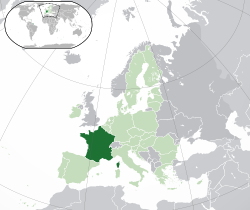
During the Iron Age, what is now Metropolitan France was inhabited by the Gauls, a Celtic people. The Gauls were conquered in 51 BC by the Roman Empire, which held Gaul until 486. The Gallo-Romans faced raids and migration from the Germanic Franks, who dominated the region for hundreds of years, eventually creating the medieval Kingdom of France. France emerged as a major European power in the Late Middle Ages, with its victory in the Hundred Years’ War (1337 to 1453) strengthening French state-building and paving the way for a future centralized absolute monarchy. During the Renaissance, France experienced a vast cultural development and established the beginning of a global colonial empire. The 16th century was dominated by religious civil wars between Catholics and Protestants (Huguenots).
France became Europe’s dominant cultural, political, and military power under Louis XIV. French philosophers played a key role in the Age of Enlightenment during the 18th century. In 1778, France became the first and the main ally of the new United States in the American Revolutionary War. In the late 18th century, the absolute monarchy was overthrown in the French Revolution. Among its legacies was the Declaration of the Rights of Man and of the Citizen, one of the earliest documents on human rights, which expresses the nation’s ideals to this day. France became one of modern history’s earliest republics until Napoleon took power and launched the First French Empire in 1804. Fighting against a complex set of coalitions during the Napoleonic Wars, he dominated European affairs for over a decade and had a long-lasting impact on Western culture. Following the collapse of the Empire, France endured a tumultuous succession of governments: the monarchy was restored, it was replaced in 1830 by a constitutional monarchy, then briefly by a Second Republic, and then by a Second Empire, until a more lasting French Third Republic was established in 1870. By the 1905 law, France adopted a strict form of secularism, called laïcité, which has become an important federative principle in the modern French society.
France reached its territorial height during the 19th and early 20th centuries, when it ultimately possessed the second-largest colonial empire in the world. In World War I, France was one of the main winners as part of the Triple Entente alliance fighting against the Central Powers. France was also one of the Allied Powers in World War II, but came under occupation by the Axis Powers in 1940. Following liberation in 1944, a Fourth Republic was established and later dissolved in the course of the Algerian War. The Fifth Republic, led by Charles de Gaulle, was formed in 1958 and remains to this day. Following World War II, most of the empire became decolonized.
Throughout its long history, France has been a leading global center of culture, making significant contributions to art, science, and philosophy. It hosts Europe’s third-largest number of cultural UNESCO World Heritage Sites (after Italy and Spain) and receives around 83 million foreign tourists annually, the most of any country in the world. France remains a great power with significant cultural, economic, military, and political influence. It is a developed country with the world’s sixth-largest economy by nominal GDP and eight-largest by purchasing power parity. According to Credit Suisse, France is the fourth wealthiest nation in the world in terms of aggregate household wealth. It also possesses the world’s second-largest exclusive economic zone (EEZ), covering 11,035,000 square kilometres (4,261,000 sq mi).
French citizens enjoy a high standard of living, and the country performs well in international rankings of education, health care, life expectancy, civil liberties, and human development. France is a founding member of the United Nations, where it serves as one of the five permanent members of the UN Security Council. It is a member of the Group of 7, North Atlantic Treaty Organization (NATO), Organisation for Economic Co-operation and Development (OECD), the World Trade Organization (WTO), and La Francophonie. France is a founding and leading member state of the European Union (EU).
|









 The 1992 Winter Olympics, officially known as the XVI Olympic Winter Games (French: Les XVIes Jeux olympiques d’hiver), were a winter multi-sport event celebrated from 8 to 23 February 1992 in Albertville, France. They were the last Winter Olympics to be held the same year as the Summer Olympics,[1][2] and the first where the Winter Paralympics were held at the same site. Albertville was selected as host in 1986, beating Sofia, Falun, Lillehammer, Cortina d’Ampezzo, Anchorage and Berchtesgaden. The games were the third Winter Olympics held in France, after Chamonix in 1924 and Grenoble in 1968, and the fifth Olympics overall in the country.
The 1992 Winter Olympics, officially known as the XVI Olympic Winter Games (French: Les XVIes Jeux olympiques d’hiver), were a winter multi-sport event celebrated from 8 to 23 February 1992 in Albertville, France. They were the last Winter Olympics to be held the same year as the Summer Olympics,[1][2] and the first where the Winter Paralympics were held at the same site. Albertville was selected as host in 1986, beating Sofia, Falun, Lillehammer, Cortina d’Ampezzo, Anchorage and Berchtesgaden. The games were the third Winter Olympics held in France, after Chamonix in 1924 and Grenoble in 1968, and the fifth Olympics overall in the country. 
 France, officially the French Republic (French: République française), is a sovereign state comprising territory in western Europe and several overseas regions and territories. The European part of France, called Metropolitan France, extends from the Mediterranean Sea to the English Channel and the North Sea, and from the Rhine to the Atlantic Ocean. France spans 640,679 square kilometres (247,368 sq mi) and has a total population of 67 million. It is a unitary semi-presidential republic with the capital in Paris, the country’s largest city and main cultural and commercial centre. The Constitution of France establishes the state as secular and democratic, with its sovereignty derived from the people.
France, officially the French Republic (French: République française), is a sovereign state comprising territory in western Europe and several overseas regions and territories. The European part of France, called Metropolitan France, extends from the Mediterranean Sea to the English Channel and the North Sea, and from the Rhine to the Atlantic Ocean. France spans 640,679 square kilometres (247,368 sq mi) and has a total population of 67 million. It is a unitary semi-presidential republic with the capital in Paris, the country’s largest city and main cultural and commercial centre. The Constitution of France establishes the state as secular and democratic, with its sovereignty derived from the people.


